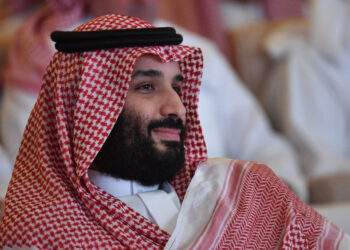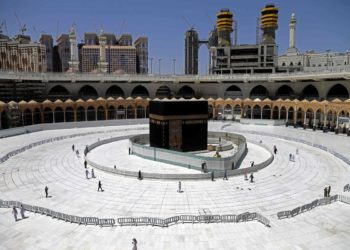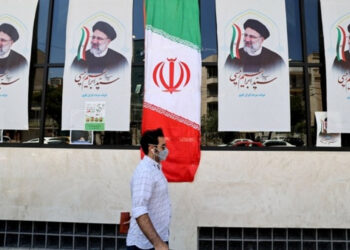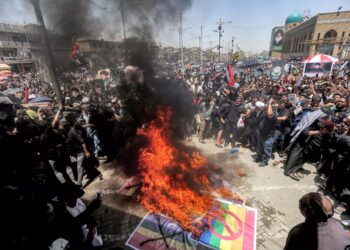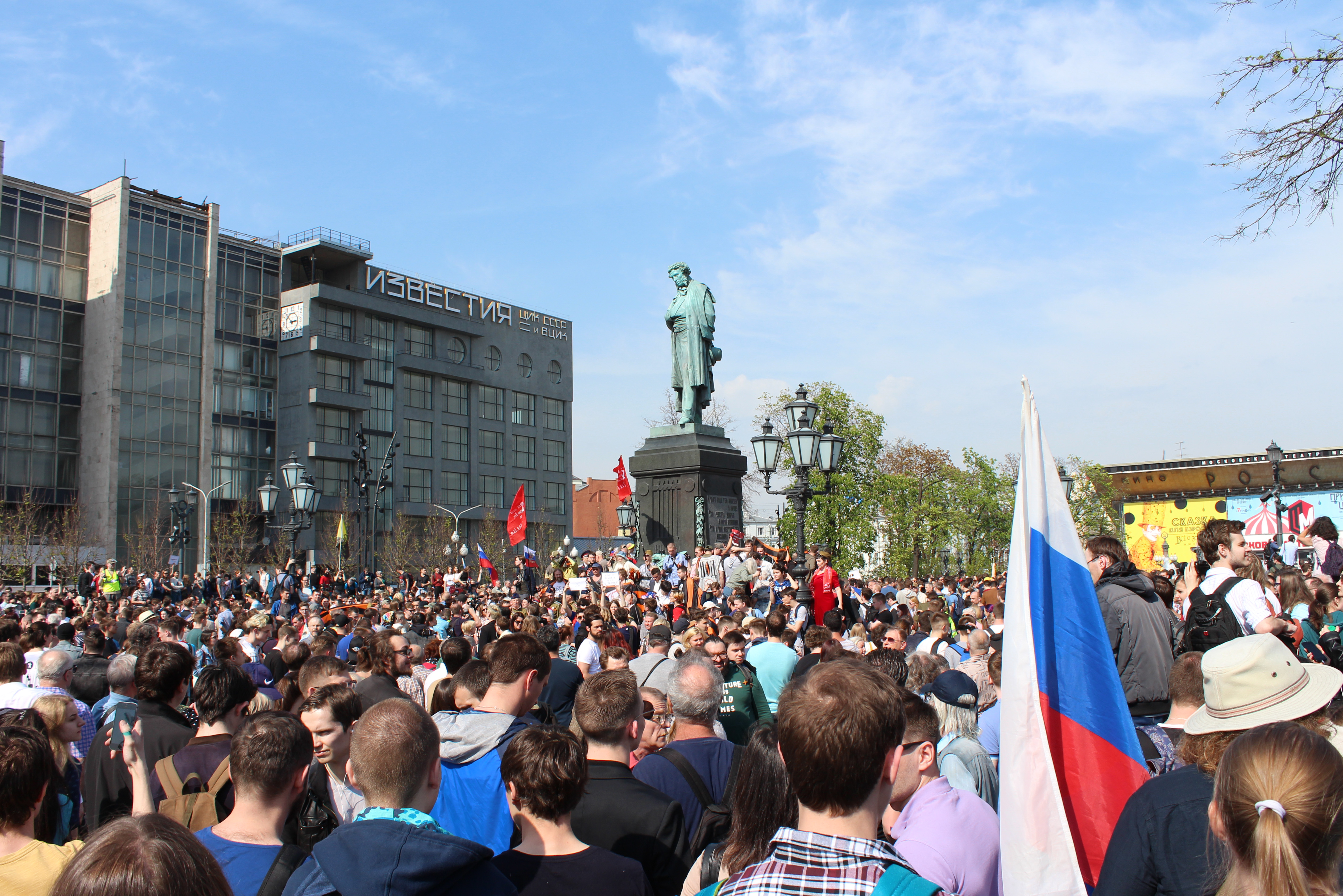In many ways, this may be a rare moment of tenacity for Iraq. The country is starting to step out of despondency, recovering economically and politically from the war against the Islamic State, as well as the measures taken by the government in Baghdad to curb the Kurdish independence drive.
At the moment, U.S. policy toward Iraq relies heavily on forging a strong Saudi-Iraqi partnership, which relieves Washington from having to fund Iraq’s rebuilding.
Iraqi-Saudi ties have thawed significantly recently, becoming stronger than they have been in three decades.
Saudi Arabia hasn’t had a diplomatic presence in Iraq since the Gulf War of 1991 when Saddam Hussein invaded Kuwait. The ties remained severely limited even after the American invasion of Iraq in 2003, which preceded the strengthening of successive Shia political ruling parties in Iraq, whose interests the Saudis saw to be increasingly tied to Iran.
“After 2003, the Saudis gave Iraq the cold shoulder as it was opposed to a Shiite-led government,” Joel Wing, an Iraq analyst and writer behind the Musings On Iraq blog, told The Globe Post. “In the last year, though, the two countries have been opening up and restoring relations.”
The past few months saw the opening of the Saudi Embassy in Baghdad and a consulate in Najaf, as well as the start of regular flights between the two countries – all attesting to the significantly improving relations between the nations.
“The thaw in relations is unprecedented, as there seems to be a genuine interest in strengthening economic and political relations between the two countries,” Mehiyar Kathem, a research associate focusing on state building and international development at the University College London, told The Globe Post.
The Saudi Arabia-Iraq Coordination Council was inaugurated last year in Riyadh with intentions to strengthen ties between the nation further. Security and reconstruction partnerships are aimed at improving cooperation on investment in oil and gas industry, trade, as well as student and cultural exchanges.
“For Iraq, Saudi Arabia can be very important from an economic perspective,” Umer Karim, a doctoral researcher at the Department of Political Science and International Studies, University of Birmingham, told The Globe Post. “Saudi investors and businesses can boost up economic activity in the country and also can be a big monetary support in terms of reconstruction of Iraqi territories destroyed in the war against ISIS.”
In October, Saudi Arabia for the first time participated in the Baghdad International Fair saw, with at least 60 companies attending the event.
“Iraq is desperate for reconstruction assistance, and Saudi Arabia, and by extension the Arab Gulf, can provide necessary funds for areas that were heavily destroyed,” Kathem said. “This is important not only for stability but also for the image making of [Iraqi Prime Minister] Haider al-Abadi, who needs to be seen to be doing something for devastated, largely Sunni, provinces in Iraq.”
This approach may also have security implications: Washington and Riyadh believe that reconstruction using Gulf funding can be a way to improve Baghdad’s relations with its Arab neighbors.
“The very start of Saudi-Iraqi engagement itself cannot have happened without a genuine will to establish relations on both sides,” Karim said. “This relationship, for now, may remain limited to facilitating bilateral trade and commerce, but eventually a more vibrant political partnership between the two countries cannot be disregarded.”
Like the Saudis, many countries in the region isolated Iraq after the Gulf War, but that may be slowly changing. Kuwait, for instance, was one of the main donor countries to Baghdad during the war against the Islamic State.
Iraq’s improved relations with its neighbors are beneficial for Washington, which may be hesitant to directly engage in Iraq’s reconstruction but sees the need for a strong Iraq. Empowered Baghdad can bring stability to the region, so the U.S. is investing political resources in encouraging Saudi Arabia and its Gulf partners to participate in these rebuilding efforts.
“What we are witnessing is the beginning of an improvement in relations orchestrated by the U.S. with a view to meeting two complementary goals,” Kathem said. “The first is to push back against Iranian expansionism in the region, and the second, particularly important for the U.S., is to help Iraq rebuild using Gulf reconstruction funds – mostly loans.”
Saudi Arabia, for its part, shares most of these goals, but primarily aims to shift Iraqi politics away from Iran. Riyadh’s interest in reconstruction will support Saudi Arabia’s long-term interests in turning Iraqi Shiite elites away from Tehran.
“A stronger Iraq – Saudi partnership in the region will stabilize the conflict-prone northern Gulf, as well as ensure that Iraq is a neutral actor in the ongoing conflict between Saudi Arabia and Iran,” Wing said. “It has been a long-held fear of Saudi Arabia that Iraq would be swallowed up by Iran; an improvement in relations shows that Iraq is willing to stand on its own two feet and decide its own foreign policy and according to its own interests.”
Securing a presence in the country, particularly before May’s 2018 elections, has also been a motivating factor for Saudi Arabia.
“Saudi Arabia realizes that it focused much of its attention in previous years on supporting Sunni political groups; its thinking is changing today that to affect change in Iraq it needs to reach out to non-Sunni groups,” Kathem said. “This is a major change in policy towards Iraq and this round of Iraqi elections.”
If the election is dominated by Iran-aligned political cadres, such as the Hashd groups and Islamic Dawa party factions, which is likely to happen, according to Kathem, the influence of Tehran will not be weakened, but Saudi engagement will continue, as the country is making efforts to become a more reliable partner for Iraq.
“Saudis will calibrate their political intentions vis-a-vis Iraq according to the result of Iraq’s elections, but anything that leads to a reduction in Iranian influence is a favorable outcome for the Saudis,” Karim said.
If a more secular and nationalistic government emerges, Iraq will likely make a more forceful effort to have an independent foreign policy outlook. A more secular Iraq will likely strive to improve interaction with its Arab neighbors while developing closer economic ties and balancing relations and rivalries in the region.
Karim added that depending on the nature of the government that is formed after the elections, Iraq might even assume the role of an interlocutor, if not mediator, between Iran and Saudi Arabia.
“Iraq understands that its relationship with Iran has reached a plateau,” Kathem said. “The Iraqi government has been desperately trying to balance relations and ongoing rivalries in the region, particularly between Iran and Saudi Arabia.”
Much will depend on the nature of the future government, but if Iraq can balance its ties between the U.S. and Iran, it can deal with Tehran and Riyadh, Wing concluded.



